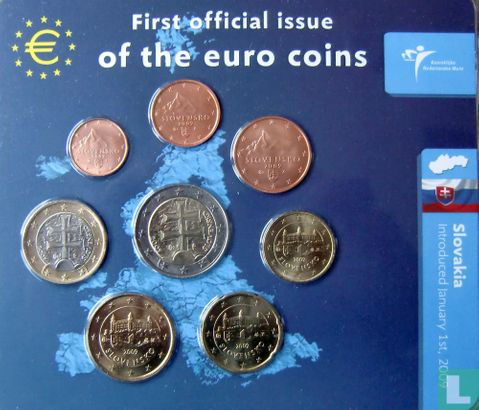Iveta Grossová, Director-General of the Tax Section, Financial Directorate
Considered the foremost global expert on retail banking innovation, Brett King is also a three-time bestselling author and founder of the mobile banking startup “Moven.” King was voted American Banker’s “Bank Technology News Innovator of the Year.” In 2013 he was nominated by Bank Innovation as one of the “Top Ten coolest brands in banking,” the only individual to make that list. He is also on the board of the Centre for Financial Services Innovation.
Brett King Bank 4 Future of Financial Services
Key material
The following outputs will be released during the course of the meeting:
- Report: Tax Administration 3.0 and the Digital Identification of Taxpayers: Initial Findings
- Report: Tax Administration 3.0 and Connecting with Natural Systems: Initial Findings
- Report: Tax Administration 3.0 and Electronic Invoicing: Initial Findings
- Report: Digital Services: Supporting SMEs to Get Tax Right
- Report: Bilateral Advance Pricing Arrangement Manual
- Statement of outcomes
ACLEI was pleased to attend a bilateral meeting with the Indonesian delegation from and at the G20 Anti-Corruption Working Group. We discussed opportunities for cooperation and how ACLEI can learn from KPK's history fighting corruption as we move into the #NACC.
OECD Secretary-General Mathias Cormann says he is "quietly optimistic" that a global minimum corporate tax rate will be implemented by 2024.
Mr Cormann was in Sydney on Friday to close the OECD's Forum on Tax Administration (FTA) Plenary, which this week hosted officials from around the world focusing on how to boost international tax cooperation.
A key issue is implementing an OECD-brokered deal to rewrite cross-border taxation rules to deal with challenges from the digitisation of the economy, including tax avoidance by large multinationals.
The "pillar one" portion of the deal would replace unilateral taxes on digital services with a new mechanism enabling multinationals to be taxed in part based on where they sell products and services, rather than where they situate their headquarters and intellectual property.
Under the plan's second pillar, a floor rate would be put under corporate income tax via a minimum global corporate tax rate of 15 per cent, with the aim for countries to use it to protect their tax bases.
The former Australian finance minister, in closing remarks, said once a "critical mass" of countries legislated the global minimum it would very quickly become "self-perpetuating".
"As It will not be in any country's interest to leave money on the table for other jurisdictions to collect at their expense," he said
"That is why we are quietly optimistic that the momentum is there to ensure that pillar two of this historic agreement will be implemented in time for 2024."
Mr Cormann, previously a West Australian senator who worked under three Liberal prime ministers before becoming the new OECD chief in 2021, also pointed to the "sobering backdrop" of war in Ukraine.
He said the "war of aggression" was most sad for the Ukrainian people, while noting its impact on the global economy, energy markets and energy transition.
"It's a sobering backdrop but one that should make us even more determined to forge a better future based on increased and ever improving international cooperation," he told the forum.
Earlier this week, the OECD warned global economic growth is slowing more than was forecast a few months ago in the wake of Russia's invasion of Ukraine, flagging higher recession risks in major economies.
In hacked cyberspace no one can hear you scream
The Optus hack is a wake-up call for businesses to get their digital affairs in order or pay the price, writes Morry Bailes.
Robodebt Royal Commission begins
Automated debt recovery system goes under the microscope
How Money Was Born: The Small Seashell and the Fierce Maldivian Queen That Made the Modern World
How humanity turned another species into its first specie.
Money began as a language for expressing gratitude and became the lever of the extraction economy — the currency of aggregate human entitlement. In the golden dawn of modern capitalism, Henry Miller — passionate, idealistic, and broke — sang the thrush song of warning: “The dilemma in which we find ourselves today is that no matter how much we increase the purchasing power of the wage-earner he never has enough.” A century hence, the dilemma has swelled to a carbon cloud of doom — and yet money keeps washing through this pale blue dot no longer capable of regarding itself as a world without its circulating medium.
How did we get here?
It turns out we came on the back of a small marine gastropod mollusk, in the lap of a fierce Maldivian queen.

Known as the money cowry, Monetaria moneta is the world’s least impressive cowry — so plain it was entirely omitted from the most lavish illustrated encyclopedia of seashells — and its first global currency. Its remarkable story, laced with all the imaginative strengths and moral follies that make us human, comes alive in The Sound of the Sea (public library) — Cynthia Barnett’s wondrous evolutionary-cultural history of seashells. She writes:
In the fourteenth century, a queen known as Rehendi Khadijah ruled the islands of the Maldives with epic command. One of the earliest women leaders of an Islamic nation, she derived power from both the sultanate and Islam, even as she declined to cover her head — not to mention other parts. She led the kingdom for a third of the century despite two attempts, both by husbands, to depose her. Neither man survived the effort.
All the more remarkable was the Maldivian queen’s role in the dawn of international trade. The chain of atolls, coral reefs, and lowlying islands 600 miles off the tip of India was the center of production for the first global money.






